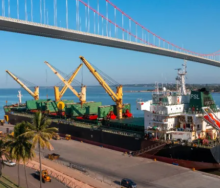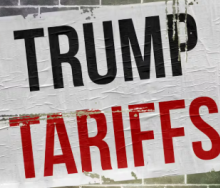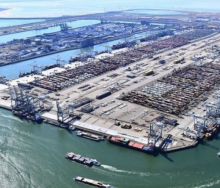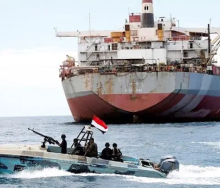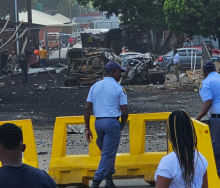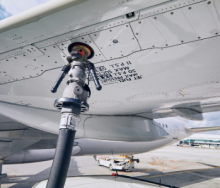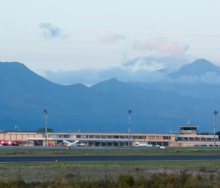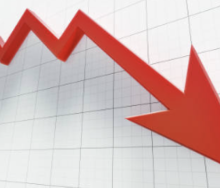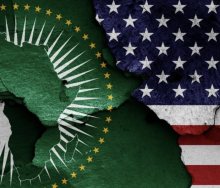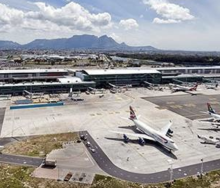Sixty per cent of South Africa’s economy is at risk because of the “high inefficiencies and infrastructural collapse” that have led to the country’s current crisis of state-owned logistics capacity, says Dr Juanita Maree of the South Africa Association of Freight Forwarders (Saaff).
The association’s CEO said trade and goods represent a major portion of the national economy but with the interrupted movement of freight, this isn’t possible.
Moreover, data shows that South Africa hasn’t had a functioning logistics network over the last decade.
Cargo throughout at the country’s ports, Maree says, is one of the biggest contributors to economic strain.
“Our terminal efficiency has declined by 28% compared to our internal targets.
“Benchmarked against globally recognised best practices for ports of a similar size, current throughput at 84% of demonstrated capacity is 50% below norm.”
The current situation of vessels waiting at sea to enter the country’s ports, and export trucks battling to gain fast enough access to offload at terminals, intensified in the 3rd and 4th quarters of this year, Maree says.
Capacity issues reaching crisis point at key ports, resulted in severe backlogs of freight and costly delays, she adds.
“The national logistics crisis is our own ‘inconvenient truth’.”
However, while the government and its state-owned logistics utility, Transnet, has made headlines for their apparent inability to solve a supply-chain mess that they alone are responsible for, not all is doom and gloom.
Maree, for one, is known for her sagacious ability to hold private and public stakeholder interests together.
“The full extent of the position must be fully understood and, at the same time, it is equally important to know that the issues are being addressed by the government and the private sector as a matter of national importance of the highest priority, from a platform of shared responsibility,” she says.
“Over the past two weeks, leaders from across the logistics, supply chain and transport sectors have supplied exhaustive detail of the situation to business and the nation, generating wide media coverage.
“The message from industry highlighted the issues, while at the same time underscoring solutions which are, by and large, matters covered in the logistics roadmap to recovery and the work of the National Logistics Crisis Committee.
“This is all work in progress, thanks to the collective focus.
“But it is no secret that, fixing the fundamental issues requires time and significant resources.
“To be sustainable, the approach requires a complete overhaul of the strategy and operational approach to the management of port and rail infrastructure – these are matters at the top of the agenda at parliamentary, institutional, national and regional levels.
“The reality is that the issues are now with us and impact – indiscriminately – all sectors of the economy, the people of South Africa, other African countries, regional economies and indeed our international partners are all affected.
“This conversation must continue but must be accompanied by immediate action.
“While the knock-on impact of the situation cannot be underestimated, I am greatly encouraged by the stage we have reached.”
Open conversation about solving the logistics crisis has widened collaboration, Maree says.
“The logistics sector is passionate and fully committed to the solutions and wholesale transformation that are required.
“This is evident in the way representative bodies have come forward, and leaders from across every sub-sector are standing up, calling for reform and driving corrective action, with Government right behind the movement.”
Beyond the crises of today, fundamental changes are required for South Africa to reclaim its rightful place as the continent’s top, trusted enabler of intra-Africa trade here and a key player across global markets.

